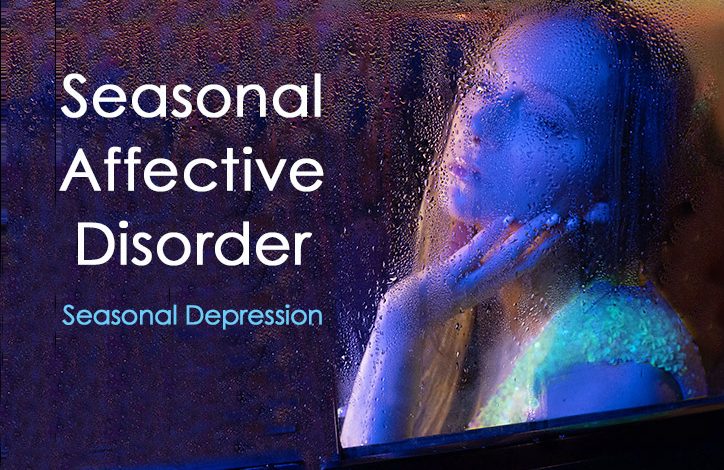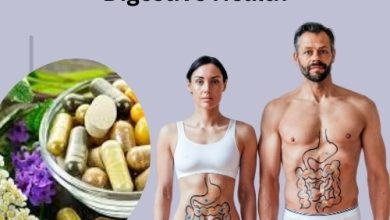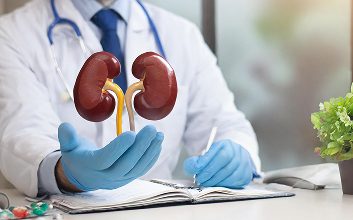Top 5 Supplements for Seasonal Affective Disorder Relief: Beat the Winter Blues

When the days grow shorter and the sunlight fades, many people experience more than just the “winter blues.” For some, this seasonal slump turns into something deeper — Seasonal Affective Disorder (SAD). This type of depression usually strikes during the fall and winter months when daylight is limited, leading to low mood, fatigue, and loss of motivation.
While therapy, light exposure, and lifestyle changes play vital roles in managing SAD, certain supplements can make a significant difference. They help balance mood, regulate sleep patterns, and support brain chemistry that’s often disrupted during darker months.
The top 5 supplements for Seasonal Affective Disorder relief, how they work, and the science behind their effectiveness — so you can beat the winter blues naturally and reclaim your vitality.
Understanding Seasonal Affective Disorder (SAD)
Before we dive into the supplements, it’s important to understand what SAD really is.
Seasonal Affective Disorder is a type of depression linked to seasonal changes, most often appearing in late fall or early winter and improving during spring or summer. Experts believe that the reduction in sunlight disrupts the body’s internal clock (circadian rhythm) and affects neurotransmitters like serotonin and melatonin — both critical for mood regulation and sleep.
Common Symptoms of SAD Include:
- Persistent low mood or sadness
- Fatigue and low energy
- Oversleeping or difficulty waking up
- Weight gain or increased cravings for carbs
- Loss of interest in activities
- Difficulty concentrating
- Feelings of hopelessness or guilt
If these symptoms sound familiar and occur seasonally, it’s likely that you’re experiencing Seasonal Affective Disorder.
Why Supplements Can Help with SAD
Our brains rely on a delicate balance of nutrients to produce mood-regulating chemicals like serotonin, dopamine, and melatonin. During the winter, reduced sunlight and lower vitamin D levels can throw this balance off.
Supplements provide the body with key nutrients to restore optimal brain function, regulate hormones, and improve resilience against stress and depression. While not a replacement for medical treatment, they can work synergistically with light therapy and healthy lifestyle habits to deliver noticeable results.
1. Vitamin D3 – The Sunshine Vitamin
How It Helps:
Vitamin D3 is arguably the most important supplement for managing SAD. Known as the “sunshine vitamin,” it’s produced in your skin when exposed to sunlight. During winter, when sunlight is scarce, vitamin D levels drop, leading to mood disturbances and depressive symptoms.
Low vitamin D3 has been linked to reduced serotonin production, which is crucial for emotional well-being. Research has shown that people with SAD often have significantly lower vitamin D levels during the winter months.
Benefits:
- Boosts mood and reduces depressive symptoms
- Supports serotonin synthesis
- Enhances energy levels
- Strengthens immunity (which often dips during winter)
Recommended Dosage:
Most experts recommend 1,000 to 2,000 IU daily, but some individuals may require more based on deficiency levels. It’s best to get your blood tested to determine your optimal dosage.
Best Sources:
- Vitamin D3 supplements (cholecalciferol form is best absorbed)
- Fatty fish (salmon, mackerel)
- Fortified foods like milk and cereals
Pro Tip: Pair vitamin D3 with vitamin K2 for better absorption and bone health support.
2. Omega-3 Fatty Acids – Nourish the Brain and Lift the Mood
How It Helps:
Your brain thrives on healthy fats, and Omega-3 fatty acids—especially EPA (eicosapentaenoic acid) and DHA (docosahexaenoic acid)—are essential for maintaining emotional balance. Studies show that people with depression, including SAD, often have lower levels of omega-3s in their bloodstream.
Omega-3s help regulate neurotransmitters, reduce inflammation, and improve communication between brain cells. They also play a role in stabilizing mood and preventing emotional swings, which are common during the darker months.
Benefits:
- Enhances serotonin and dopamine activity
- Reduces inflammation in the brain
- Improves focus and cognitive clarity
- Promotes emotional resilience
Recommended Dosage:
Aim for 1,000–2,000 mg of combined EPA and DHA per day. Some studies suggest higher EPA content (60% or more) may be more effective for mood regulation.
Best Sources:
- Fish oil supplements
- Algae oil (for vegetarians)
- Fatty fish like sardines, salmon, and anchovies
Pro Tip: Choose a high-quality, purified fish oil supplement to avoid mercury contamination.
3. B Vitamins – The Energy and Mood Boosters
How They Help:
The B-vitamin complex — particularly B6, B9 (folate), and B12 — plays a crucial role in mental health. These vitamins are needed for the production of serotonin, dopamine, and norepinephrine, which are neurotransmitters that influence mood and motivation.
Deficiency in B vitamins can lead to fatigue, irritability, and low mood — symptoms that mimic SAD. Supplementing can help restore mental clarity and energy while improving emotional stability.
Benefits:
- Supports neurotransmitter synthesis
- Enhances energy production
- Reduces symptoms of depression and anxiety
- Helps regulate sleep patterns
Recommended Dosage:
Look for a B-complex supplement that provides:
- B6 (Pyridoxine): 10–50 mg
- B9 (Folate): 400–800 mcg
- B12 (Methylcobalamin): 500–1,000 mcg
Best Sources:
- Leafy greens
- Eggs and dairy
- Fortified cereals
- Whole grains
Pro Tip: The methylated forms of B9 and B12 are more bioavailable and effective for those with absorption issues.
4. St. John’s Wort – Nature’s Antidepressant
How It Helps:
St. John’s Wort (Hypericum perforatum) is a well-known herbal remedy for mild to moderate depression, including Seasonal Affective Disorder. This plant extract works by increasing the levels of serotonin, dopamine, and norepinephrine in the brain — neurotransmitters that play a key role in regulating mood.
Several studies have found St. John’s Wort to be as effective as prescription antidepressants, but with fewer side effects for some people.
Benefits:
- Promotes a balanced mood
- Reduces anxiety and emotional tension
- Supports restful sleep
- Enhances overall well-being
Recommended Dosage:
Typical dosage ranges from 300 mg to 600 mg (standardized extract) taken twice daily. Always start low and adjust based on tolerance.
Best Sources:
- Standardized capsules or tablets containing 0.3% hypericin
- Liquid extracts or teas
Caution:
St. John’s Wort can interact with many medications, including antidepressants, birth control pills, and blood thinners. Consult a healthcare professional before use.
5. Magnesium – The Calming Mineral
How It Helps:
Magnesium is one of the body’s most important minerals, influencing over 300 biochemical reactions — many of which are related to brain function and mood regulation. Low magnesium levels have been linked to increased risk of depression, anxiety, and sleep disturbances.
During winter, stress and poor diet can deplete magnesium levels, worsening SAD symptoms. Supplementing with magnesium promotes relaxation, eases anxiety, and improves sleep — all essential for emotional balance.
Benefits:
- Reduces stress and irritability
- Enhances sleep quality
- Supports neurotransmitter balance
- Relieves fatigue and muscle tension
Recommended Dosage:
Most adults need 200–400 mg per day of magnesium citrate, glycinate, or malate (forms that are easily absorbed).
Best Sources:
- Magnesium-rich foods: nuts, seeds, spinach, and dark chocolate
- Supplements (powder or capsules)
Pro Tip: Take magnesium in the evening — it can promote deeper, more restorative sleep.
Bonus Supplement: SAM-e (S-Adenosylmethionine)
If you’re looking for an extra mood boost, SAM-e is another supplement worth mentioning. This naturally occurring compound helps produce and regulate hormones like serotonin and dopamine. It has shown promising results for people with depression and SAD.
Benefits:
- Improves mood and motivation
- Supports neurotransmitter activity
- Enhances cognitive function
Recommended Dosage:
Start with 200 mg daily and gradually increase to 400–800 mg, as tolerated.
Lifestyle Tips to Complement Supplement Use
While supplements are powerful allies, they work best when paired with positive lifestyle habits. Here are a few additional strategies to help you conquer the winter blues:
1. Light Therapy
Invest in a light therapy lamp that mimics natural sunlight. Using it for 20–30 minutes in the morning can reset your circadian rhythm and boost serotonin.
2. Stay Active
Exercise releases endorphins, which naturally lift mood and combat fatigue. Even a daily 30-minute walk outdoors can make a difference.
3. Prioritize Sleep
Maintain a consistent sleep schedule. Avoid screens before bed and ensure your sleeping environment is dark and cool.
4. Eat a Balanced Diet
Incorporate whole foods, omega-rich fish, fruits, and vegetables. Avoid processed carbs and excessive sugar, which can trigger energy crashes.
5. Practice Mindfulness or Meditation
Meditation helps reduce stress and increase emotional awareness — powerful tools in managing SAD symptoms.
6. Stay Connected
Social isolation can worsen depression. Make time for loved ones, even virtually, to maintain emotional support.
Combining Supplements Safely
While each of these supplements can benefit mood individually, combining them strategically can provide synergistic effects. For example:
- Vitamin D3 + Omega-3s → Supports serotonin and brain health.
- B-complex + Magnesium → Boosts energy while calming the nervous system.
- John’s Wort + Light Therapy → Enhances antidepressant effects naturally.
However, if you are taking prescription medications, always consult your doctor first to avoid potential interactions.
When to Seek Professional Help
If your symptoms persist or worsen despite using supplements and lifestyle interventions, it’s essential to seek professional guidance. Seasonal Affective Disorder can range from mild to severe, and some individuals may require therapy or medical treatment.
Don’t hesitate to talk to a healthcare provider, especially if you experience:
- Intense sadness or hopelessness
- Thoughts of self-harm
- Difficulty functioning in daily life
Mental health is just as important as physical health — and support is available.
Conclusion: Take Control of Your Winter Mood Naturally
Seasonal Affective Disorder can feel like a heavy cloud hanging over your life, but you’re not powerless. By combining natural supplements like Vitamin D3, Omega-3 fatty acids, B Vitamins, St. John’s Wort, and Magnesium, you can nurture your mind and body through the darker months.
Each supplement works in its own unique way to restore balance — whether by boosting serotonin, reducing stress, or supporting brain function. When paired with light therapy, a balanced diet, and regular movement, these natural aids can help you beat the winter blues and embrace the season with renewed energy and optimism.




